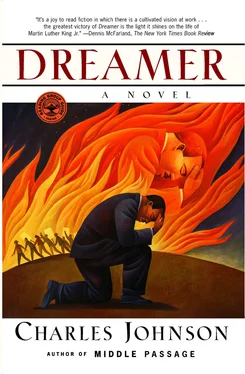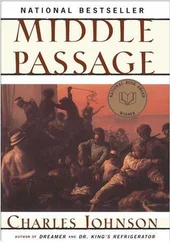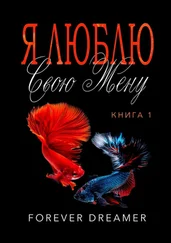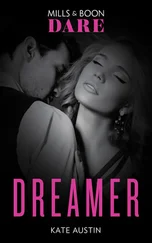He and his staff decided to postpone the march for the sanitation workers until Monday. His plan that Wednesday was to visit Rev. Samuel Kyles’s home for dinner on Thursday evening. Somewhere I’d heard that on the third he’d dined on catfish, buttered black-eyed peas, and a tossed salad at the Four Way Grill. He asked me, “How is Chaym? The last time we talked, you said you hadn’t seen him, that two men came by the farmhouse …”
“Yes,” I said. “That’s right. It’s been weeks.”
“Do you think those government men killed him?”
“Honestly, I don’t know, sir.” And I did not. All that was left of Chaym Smith were a few of his deeds and products: paintings, sketchbooks, and his saxophone, which I was learning to play by paying for private lessons with a graduate student in Columbia College’s Music Department. Sometimes I sat doing meditation “with seed,” as it was called, journeying through passages I’d committed to memory from the spiritual traditions of the world. Occasionally I volunteered at the poorer churches, temples, synagogues, and mosques, though I belonged to none. Now and then when I thought of it, I practiced the Tai Chi Chuan form he’d taught me. And I no longer worried about defining myself or being wrong. “I just pray he’s all right.”
“So do I. We’ve had too many casualties already. If it’s not Division Five after us, then it’s COINTEL-PRO or COMINFIL. Since sixty-three we’ve had more break-ins than I can remember, and they’ve planted informants everywhere and … Wait, I think someone’s calling me — I’d better go.”
“Good night,” I said, “and God bless you.”
“Good-bye, Matthew.”
It was the last time we’d spoken. (Why, when he said that, did he sound so like Socrates bidding farewell to Crito?) Later, when I pored over the flood of news reports, trying to make sense of his slaying, my hands shaking, I found only conundrums, as if I was prying open a Chinese puzzle box. The deeper I descended, the funnier-looking these fish appeared. The man in charge of the police and fire departments, I discovered, was Frank Holloman, who’d been with the Bureau for twenty-five years. He and Hoover were friends. In fact, Holloman once ran the Atlanta office of the FBI, which kept the Kings under surveillance. In other words, the Bureau had Memphis locked up tight. Yet King had no security — his own people had run them off because they didn’t trust the police. The city had assigned two detectives, one of them a black man named Ed Reddick, to be in Fire Station 2, just south of the Lorraine Motel. It was a good location for keeping an eye on the motel, but on that Wednesday two black firemen — Norvell Wallace and Floyd Newsom — were pulled off the job. People said different things about that, and none of them made sense to me. Someone told the firemen there was a threat made against them (some said this was Reddick), so they were transferred, allegedly for their own safety. (Reddick said he did not have them transferred.) But then, Reddick was pulled away too; a Secret Service man from D.C. met him at the station and said there was a contract out on his life, so they sent him home. Yet — and yet — some Negroes called Detective Reddick a spy who felt that one of the black firemen was a militant sympathetic to the strikers. This welter of conflicting “facts,” of so many testimonies that contradicted one another, was dizzying, and I swear I didn’t have a cross-eyed guess as to who was telling the truth.
And the facts grew stranger with each new string I pulled. James Earl Ray, a drifter and escaped convict sentenced in 1960 to twenty years in the Missouri State Penitentiary for armed robbery (aliases: Eric Gait, Harvey Lomeyer, John Willard) with a white Mustang bearing Alabama license plate 1-38993, but no motivation for murdering King, was being hunted as the prime suspect for the shooting. But, I wondered, as any sane man would, if a real assassin might leave behind so many fingerprinted items (shaving cream, clippers, a radio with Ray’s prison I.D.) to clearly identify him on the street outside Bessie Brewers boardinghouse at 4221/2 South Main Street? No, that was more than I could accept. In his FBI wanted poster, in his history, Ray perfectly fit the image of a patsy. Or a fool.
The gun, a 760 Remington Gamemaster, was never swabbed to determine if it had been fired. And the copperjacketed bullet sent to the FBI didn’t match — or so I read — the one extracted from King. That bullet entered his lower jaw and cheek one and a half inches below his mouth, hit the jawbone, reentered above the collarbone, then went down (left) through his neck. It was visible as a node in his left shoulder under the skin. Had he lived, he would have been a vegetable. (And who among us could have beared seeing him that way?) According to the physician who removed the bullet in St. Joseph’s Hospital, it was intact, its end flattened out. A whole bullet weighed 150 grams. The one dug out of King was 4.7 grams and 3.0 inches round. But that was not the same bullet that found its way with other evidence to Washington, D.C.
Complicating things further, and giving me more sleepless nights than I cared to count, were the claims of two black witnesses at the Lorraine when King went down, one foot stuck in the railing of the balcony, his shoe off, a cigarette crushed in his hand; they claimed they saw a plume of white smoke rise up from the large, hedgelike bushes at the back of the boardinghouse. One was Solomon Jones, Kings driver in the limousine, borrowed from a funeral parlor, which was to take King, musician Ben Branch, and Jackson to Rev. Kyles’s home. Jones said he saw a man in those bushes. So did Earl Caldwell, a journalist sent to Memphis (his editor at the New York Times, he said, wanted him to “nail” King) who heard the shot, followed by someone yelling, “Get low!” People were ducking everywhere in the courtyard, but Caldwell saw a crouching white figure in the bushes, wearing overalls and looking up at the balcony. All those bushes were cut down on April 5 by the police, who said — and I winced at their words — they needed to clear the area to look for evidence.
Inside Ebenezer Church, a choir began singing the minister’s favorite hymns, “When I Survey the Wondrous Cross” and “In Christ There Is No East Nor West.” Time stood still. The crowd was quiet, intense. A knot gathered in my throat. (I was thinking how, according to Andrew Young, when King fell on that balcony, Jesse Jackson covered his palms with the minister’s blood, wiped them on his sweater; then the next day he flew to Chicago to appear bloodstained before the press, declaring he’d held a dying King in his arms. That was untrue, said Young, and I was haunted by the feeling that this act of theater and falsity, this photo-op, would define the spirit of the black struggle for decades after the minister’s demise. Had he not said to Carmichael, “I’ve been used before”?) Then my heart gave a slight jump when Abernathy played a recording of King’s sermon, “The Drum Major Instinct,” which the minister had delivered at Ebenezer earlier in the year, on February 4, taking his text from Mark 10:35, where James and John, the sons of Zebedee, approach Jesus with their desire to sit beside him in Glory. King’s bronze voice, that startling basso profundo, washed over the crowd in skin-prickling waves and reverberated in the ether.
“There is, deep down within all of us, an instinct. It’s a kind of drum major instinct — a desire to be out front, a desire to lead the parade, a desire to be first. And it is something that runs a whole gamut of life … We all want to be important, to surpass others, to achieve distinction, to lead the parade. Alfred Adler, the great psychoanalyst, contends that this is the dominant impulse … this desire for attention … Now in adult life, we still have it, and we really never get by it. We like to do something good. And you know, we liked to be praised for it … But there comes a time when the drum major instinct can become destructive. And that’s where I want to move now … Do you know that a lot of the race problem grows out of the drum major instinct? A need that some people have to feel superior. Nations are caught up with the drum major instinct. I must be first. I must be supreme. Our nation must rule the world … but let me rush on to my conclusion, because I want you to see what Jesus was really saying … Don’t give it up. Keep feeling the need for being important. Keep feeling the need for being first. But I want you to be first in love. I want you to be first in moral excellence. I want you to be first in generosity. That’s what I want you to do …”
Читать дальше












